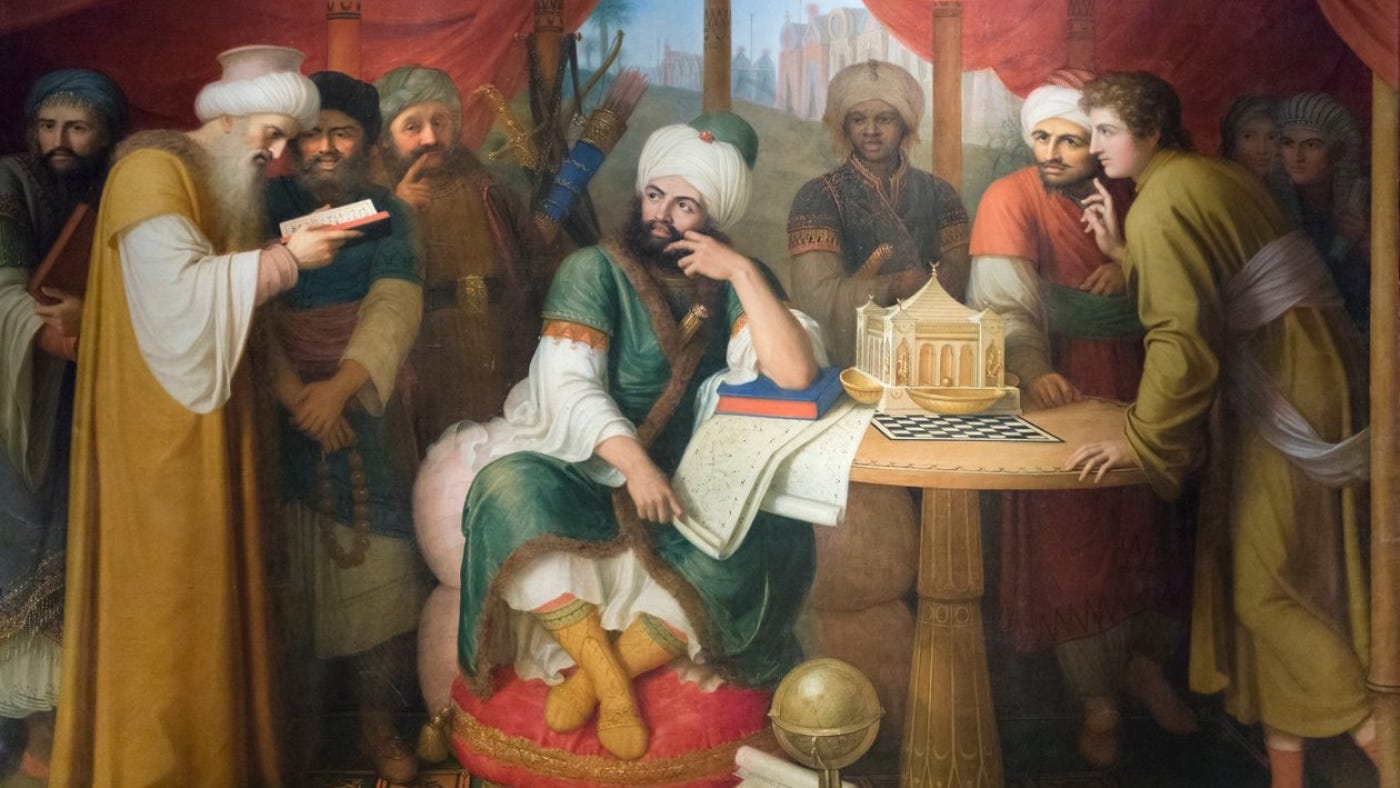Echoes of the Lost Caliphate: A Century's Reflection on Modernity and Tradition
Nostalgia Aside, the Centennial of the Ottoman Dynasty's Demise and the Abolition of the Caliphate Passes Without Tears.
The End of an Era
A significant yet quietly remembered centennial passed this week, marking 100 years since the disbandment of the world's last formally recognized caliphate. This momentous event took place on March 3, 1924, signifying the closure of a chapter that had stretched across centuries and had been integral to the Islamic faith and governance. The caliphate, akin to the Catholic pontificate, served as a unifying figurehead, binding the Muslim world together under a singular spiritual and temporal leadership.
Ataturk's Vision and the New Turkish Republic
The abolition of the caliphate was a deliberate move by Mustafa Kemal Pasha, better known as Ataturk, aimed at reinventing Turkey as a secular nation-state. This decision did not just symbolize a departure from Ottoman traditions but was a cornerstone in Ataturk's broader project of modernization and Westernization. Through sweeping reforms, Ataturk transformed Turkey, challenging centuries of Islamic tradition by promoting secularism, nationalism, and a radical cultural shift including the adoption of the Latin alphabet and the reformation of religious practices.

Global Reverberations
The dissolution of the caliphate had ramifications that extended well beyond the borders of the newly formed Turkish Republic. In British-ruled India, it sparked the Khilafat Movement, uniting Muslims and non-Muslims against colonial rule. However, attempts to revive the caliphate elsewhere proved ephemeral, illustrating the complex interplay between local aspirations and global Islamic solidarity.
A Spiritual Vacuum and the Rise of Radicalism
The absence of a caliphate left a vacuum in the Muslim world, significantly affecting global politics and contributing to the rise of radical Islamism. The quest for a unifying spiritual authority found expressions in various movements, most notably in the violent ambitions of groups like the Islamic State. This longing for a caliphate underscores the challenges faced by Muslims in reconciling modernity with tradition.
Counterfactual Musings and the Legacy of Ataturk
Exploring what might have been, some ponder whether an autonomous caliphate, similar to the Vatican's role within Italy, could have moderated the tensions between the secular and religious realms. Such speculation invites us to consider alternative histories where the caliphate might have evolved rather than been extinguished, potentially offering a model for harmonizing religious authority with the demands of a modern nation-state.
The Kemalist Legacy and Turkey's Ongoing Struggle
The abolition of the Caliphate laid the groundwork for Turkey's complex relationship with secularism and Islam. Ataturk's reforms, while successful in many respects, also sowed the seeds of discontent among those who felt alienated by the state's secularist agenda. The rise of Recep Tayyip Erdogan and his party reflects a pendulum swing towards a more overtly religious nationalism, highlighting the enduring tensions between Ataturk's vision and the desires of a significant portion of Turkish society.
Reflections on a Century Passed
A century after the last Caliph, the world reflects on the enduring impact of that moment. The abolition of the caliphate remains a watershed in the history of Islam and global politics, symbolizing the complex journey of Muslim societies through the turbulent waters of modernity, nationalism, and identity. As we look back on this centennial, it serves as a poignant reminder of the paths taken and the roads yet explored in the quest to reconcile the rich traditions of the past with the ever-evolving demands of the present and future.
Background Note
The abolition of the Caliphate in Turkey is a significant event that marked the end of the Ottoman Empire and heralded the beginning of modern Turkey under the leadership of Mustafa Kemal Atatürk. This transformation is deeply embedded in the broader context of World War I, the decline of the Ottoman Empire, and the rise of secular nationalism across the globe. The story unfolds over several key phases:
1. The Decline of the Ottoman Empire
Before its dissolution, the Ottoman Empire was known as the "Sick Man of Europe," struggling with internal decay, military defeats, and the loss of territories. Its involvement in World War I on the side of the Central Powers further weakened the empire, leading to significant territorial losses under the terms of the 1918 Armistice of Mudros.
2. The Rise of Mustafa Kemal Atatürk
Following the war, the victorious Allied Powers sought to partition the remaining Ottoman territories through the Treaty of Sèvres in 1920, igniting the Turkish War of Independence led by Mustafa Kemal, a distinguished military officer. Kemal's forces managed to repel the occupying armies and renegotiate the terms of peace in the Treaty of Lausanne (1923), which recognized the sovereignty of the newly established Republic of Turkey.
3. Abolition of the Sultanate
The transition from empire to republic began with the abolition of the Ottoman Sultanate on 1 November 1922, as the last Sultan, Mehmed VI, was deposed and exiled. This marked the end of the Ottoman dynasty's 623-year rule, leaving the caliphate as a symbolic institution without political power.
4. The Abolition of the Caliphate
The definitive step towards secularism came on 3 March 1924, when the Turkish Grand National Assembly, influenced by Atatürk's vision, formally abolished the Caliphate. This decision was part of a series of reforms aimed at modernizing Turkey, including the separation of state and religion, the adoption of a new legal system, and the introduction of the Latin alphabet.
5. Exile of the Royal Family
Following the abolition, members of the Ottoman dynasty were expelled from Turkey. The last Caliph, Abdulmecid II, was sent into exile along with other members of the royal family. This act symbolized the complete break from Ottoman traditions and the establishment of a secular, nationalist state.
Reflections
The abolition of the Caliphate was a watershed moment in the history of the Muslim world, as it represented the end of the last universal Islamic authority. Atatürk's reforms laid the foundation for a secular, democratic state, focusing on modernization, education, and gender equality. However, the removal of the Caliphate also left a vacuum in the Islamic world, leading to various movements seeking to revive or reinterpret Islamic leadership and governance.
The legacy of these events is complex and multifaceted. On one hand, Turkey's transformation into a modern, secular state has been hailed as a model of reform and modernization. On the other hand, the loss of the Caliphate has been a source of debate and nostalgia among Muslims seeking a unified Islamic leadership. The abolition of the Caliphate, therefore, not only shaped the trajectory of Turkey but also had a profound impact on global Islamic thought and politics.






